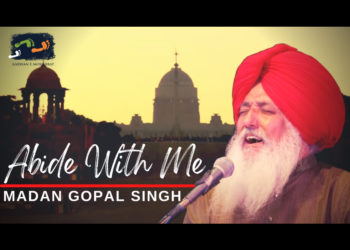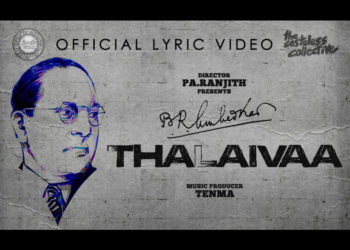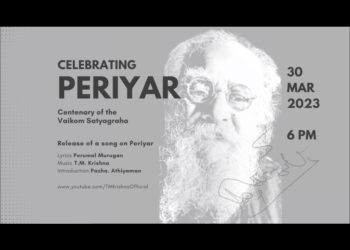The performed word – powerfully written and easily distributed through cinema did in fact re-write the way politics happens in Tamil Nadu, keeping regional parties stronger than the national parties. As I’ve argued before, the cine songs played a far greater role than it is generally acknowledged (Theodore Bhaskaran has written formidably in this regard). These songs could make their way into homes, tea stalls, and political rallies through radio and records that amplified them. It made them easily accessible and a part of public spaces.
Resistance and atrocities have many layers in Tamil Nadu. Regional parties standing up to high handedness from national parties is one narrative, but within the state, the Tamil identity fractures into abusive state powers versus citizens, party-backed caste authoritarianism and violence versus marginalised castes who have stood their ground at terrible costs.
The Casteless Collective, supported by Director Pa Ranjith’s Neelam Cultural Centre has steadfastly laid bare these realities. Hip-hop and gaana, the North Chennai pride in reclaiming the word “slum”, dalit pride and struggles – all a part of their music are constantly taken freely into public spaces. Their lyrics in Madras Tamil are biting, exhilarating, and at times hard to translate. Madras Tamil is an edgily beautiful dialect that belongs to the city. Of course you can be made to understand the meaning, but the ability to replicate its wit and sharpness into English on the behalf of non-Tamil speakers most often eludes me. They have been active for years. Their songs about quota and beef, performed to a roaring audience are now a part of their debut album “Magizhchi”. Their songs in the Rajinikanth starrer, Kaala (directed by Pa Ranjith), are fierce and fiery. So, when one of their primary lyricists decides to come out with a solo album, something powerful was in the making. On Friday, 12 April, Arivu released the first song from the album called “Yenna, ‘Naan Unakku Anti-Indian Ah?” (What? Am I Anti-Indian to You?) on YouTube and Facebook. Arivu keeps the whole set up simple deliberately. Seated in front of a cut-out of the rapper Kendrick Lamar, he questions the ruling parties at the Centre and the state in his song. “I am a Tamil who votes in this country, how do you call me anti-Indian, when I want answers for my plundered dreams, for my nation broken apart, for the houses that you burnt?” He asks: “You divide us with caste, religion and language. You set me apart because of the colour of my skin, my blood is spreading across the land, each generation of ours will rise up in resistance … Am I anti-Indian to you?” Fury thunders through the song, as enragements pile up, inter-cut with a voice clip of H Raja, former BJP MP from Karaikudi in Tamil Nadu and one of the current National Secretaries. Raja had said at a press conference “I am not prepared to answer you, you’re anti-Indian” right after a diatribe against the gathered media-persons for being “Anti-Modi” because they “worship a white-skinned Italian”. The Tamil Nadu BJP, even by the not so high standards of the Party in general, has gone to absurd lengths. In September 2018, Tamilisai Soundararajan, BJP State President had a young PhD student, Lois Sofia arrested for calling the BJP “fascist” at the Thoothukudi airport.
Regarding Lamar, Arivu says while speaking to the Indian Cultural Forum, “He represents the struggle and history of black people. I have huge respect for him. That’s why we have his silhouette poster in our creative room”. We discussed music as a political tool in Tamil Nadu. He believes that the relationship to how leaders are depicted in material culture and how “gullible” voters were has changed. According to him they no longer buy into the “man of the masses” image simply because they may play such a role on screen, or so he hopes. What is also different is how TCC uses music. Arivu’s upcoming album is called “Therukural” that literally translates as “The Voices of the Streets”. It is also a play on Thirukural which is a collection of couplets of wisdom and one of the oldest surviving Tamil texts. The album takes the same name as an initiative by the artist-members of the Neelam Cultural Centre, who regularly take music into public areas, many times singing on political issues. Arivu recalls the protest songs of Ambedkarite rallies he listened to growing up, those values still inform his life, he says.
From demonetisation to land grabs to Aadhaar — Arivu leaves out little that has transpired in the last five years. The song is unsparing of injustices done to Tamil people specifically, “people live segregated and ghettoised …examine the violence by the state like peeling an onion, each layer stinks”. He reminds voters of the Sterlite protesters being shot at and killed, of the imposition of NEET (National Eligibility cum Entrance Test), of the Tamil Nadu State Marketing Corporation (TASMAC) which has a monopoly on liquor sales in the state, setting up shops near schoolyards. One particularly potent image within the song is of the “burning huts”. Given the many instances this has happened and too often not by accident, I brought it up with him. “It is a symbol of oppression”, he answers, “Whether it is to remove a people from a place, a means to grab their lands in the name of development, or a method of caste-based persecution”.
Arivu is determined to keep this song free and easily available for distribution. It is his appeal to vote wisely, to vote responsibly. Reposting the song this morning, “Listen to the song before you vote tomorrow” he wrote on Facebook.




